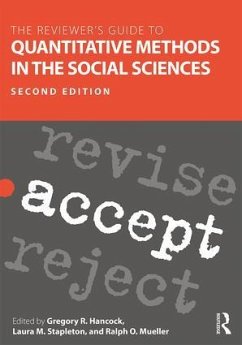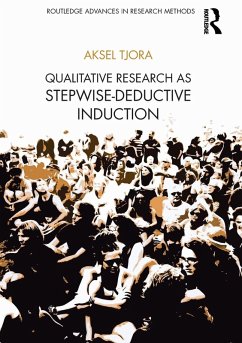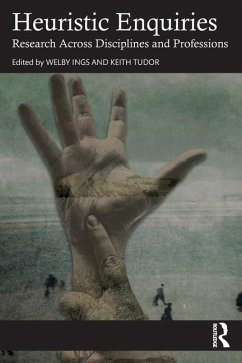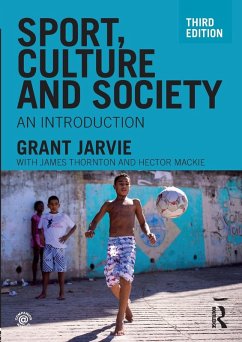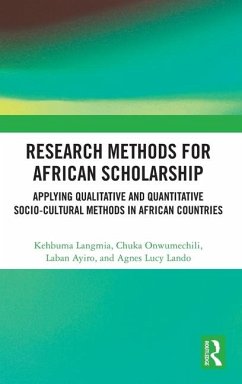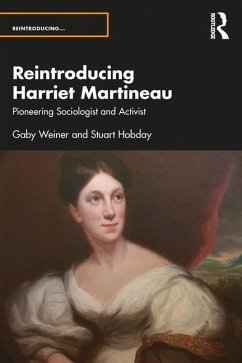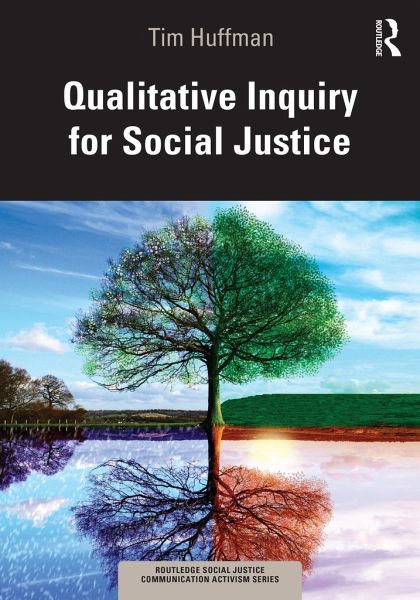
Qualitative Inquiry for Social Justice
Versandkostenfrei!
Versandfertig in 6-10 Tagen
62,99 €
inkl. MwSt.
Weitere Ausgaben:

PAYBACK Punkte
31 °P sammeln!
This textbook introduces students, researchers, and activists to the practice of qualitative inquiry that contributes to fairness, freedom, and flourishing in community life.The book takes a cyclical approach to research and action by using the metaphor of the four seasons (spring, summer, autumn, and winter) and the day cycle (dawn, day, dusk, and dark) to organize the content and activities. It lays out the step-by-step process of community-based research projects and guides readers in how to plan projects with diverse partners, generate data while participating in direct action, reflect on ...
This textbook introduces students, researchers, and activists to the practice of qualitative inquiry that contributes to fairness, freedom, and flourishing in community life.
The book takes a cyclical approach to research and action by using the metaphor of the four seasons (spring, summer, autumn, and winter) and the day cycle (dawn, day, dusk, and dark) to organize the content and activities. It lays out the step-by-step process of community-based research projects and guides readers in how to plan projects with diverse partners, generate data while participating in direct action, reflect on experiences and analyze complex data, and share insights with others through various modes of writing and presentation. Specific skills include planning, fieldwork, interviewing, thematic analysis, modeling, writing, and presenting. This innovative book provides tools for readers to conduct qualitative research that generates knowledge that can aid policy change, political mobilization, social movements, and organizing to meet universal human needs and rights.
The book is tailored to advanced undergraduate and graduate students in qualitative research methods courses in communication studies, sociology, education, social work, and public health and is also useful for professionals who use inquiry in their occupation, such as program design/evaluation, solidarity/solutions journalism, nonprofit leadership, and community development.
Online resources, including worksheets, lecture slides, facilitation tools, and sample assignments, are available at www.routledge.com/9780367567651
The book takes a cyclical approach to research and action by using the metaphor of the four seasons (spring, summer, autumn, and winter) and the day cycle (dawn, day, dusk, and dark) to organize the content and activities. It lays out the step-by-step process of community-based research projects and guides readers in how to plan projects with diverse partners, generate data while participating in direct action, reflect on experiences and analyze complex data, and share insights with others through various modes of writing and presentation. Specific skills include planning, fieldwork, interviewing, thematic analysis, modeling, writing, and presenting. This innovative book provides tools for readers to conduct qualitative research that generates knowledge that can aid policy change, political mobilization, social movements, and organizing to meet universal human needs and rights.
The book is tailored to advanced undergraduate and graduate students in qualitative research methods courses in communication studies, sociology, education, social work, and public health and is also useful for professionals who use inquiry in their occupation, such as program design/evaluation, solidarity/solutions journalism, nonprofit leadership, and community development.
Online resources, including worksheets, lecture slides, facilitation tools, and sample assignments, are available at www.routledge.com/9780367567651






